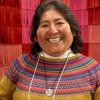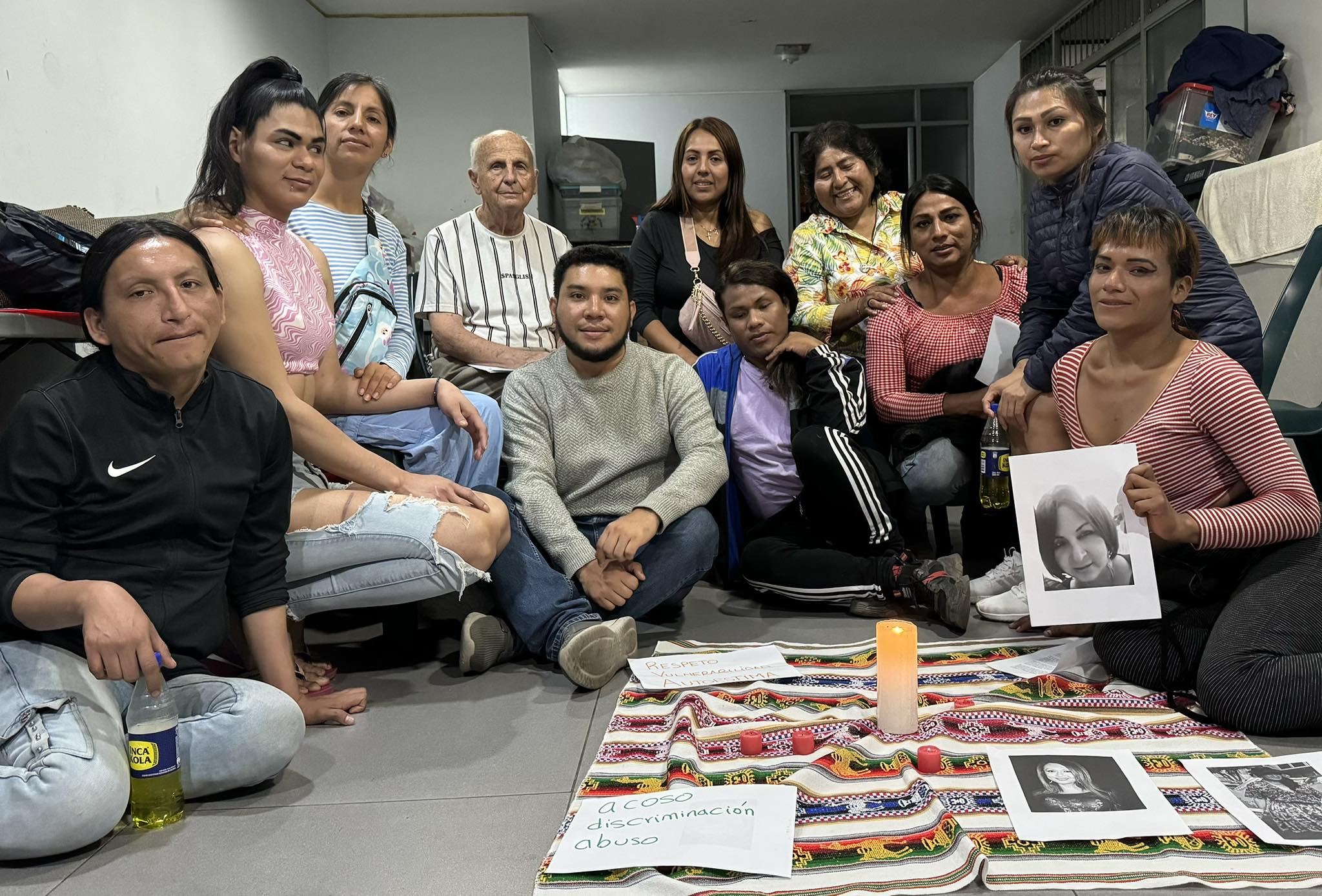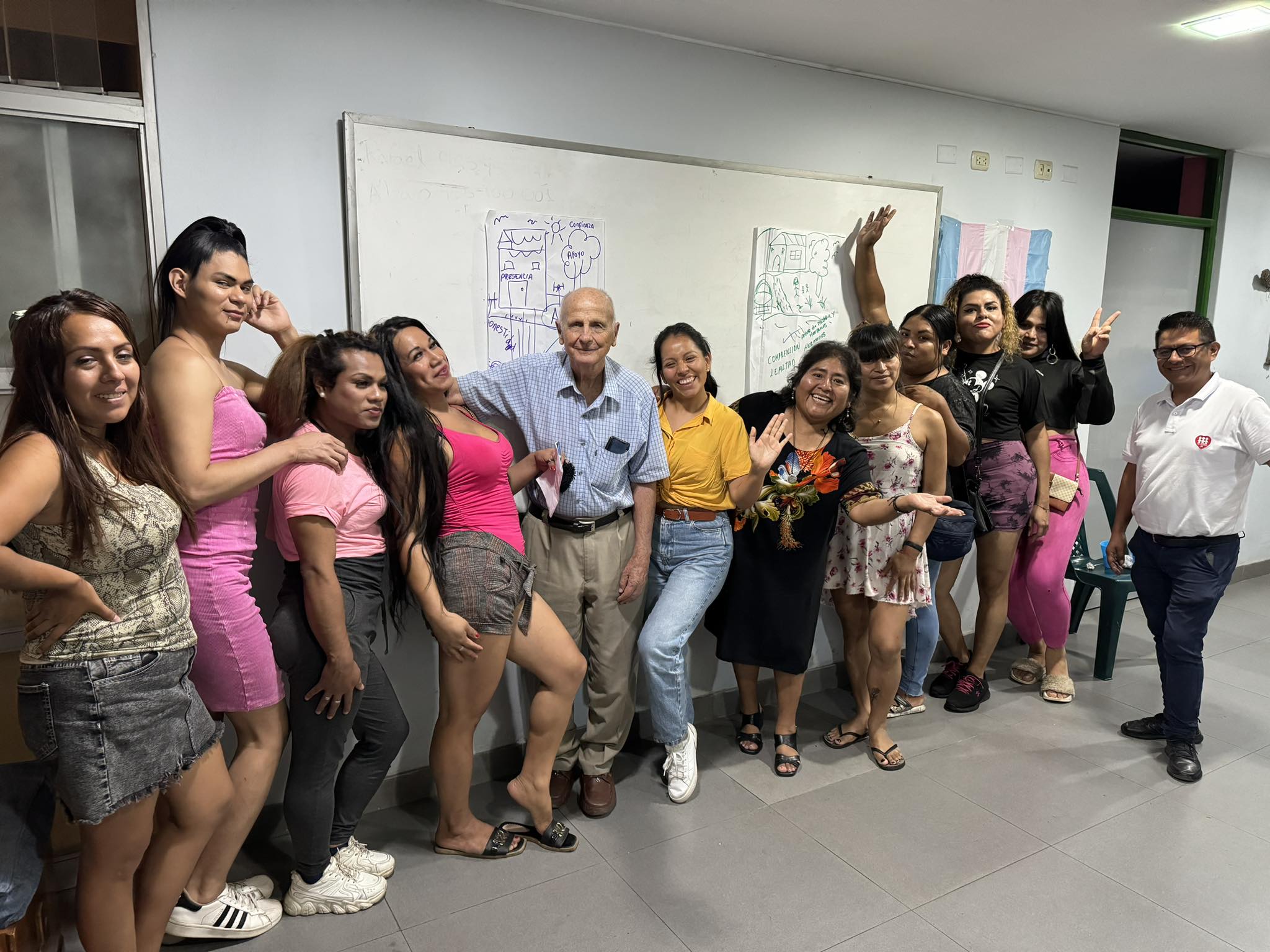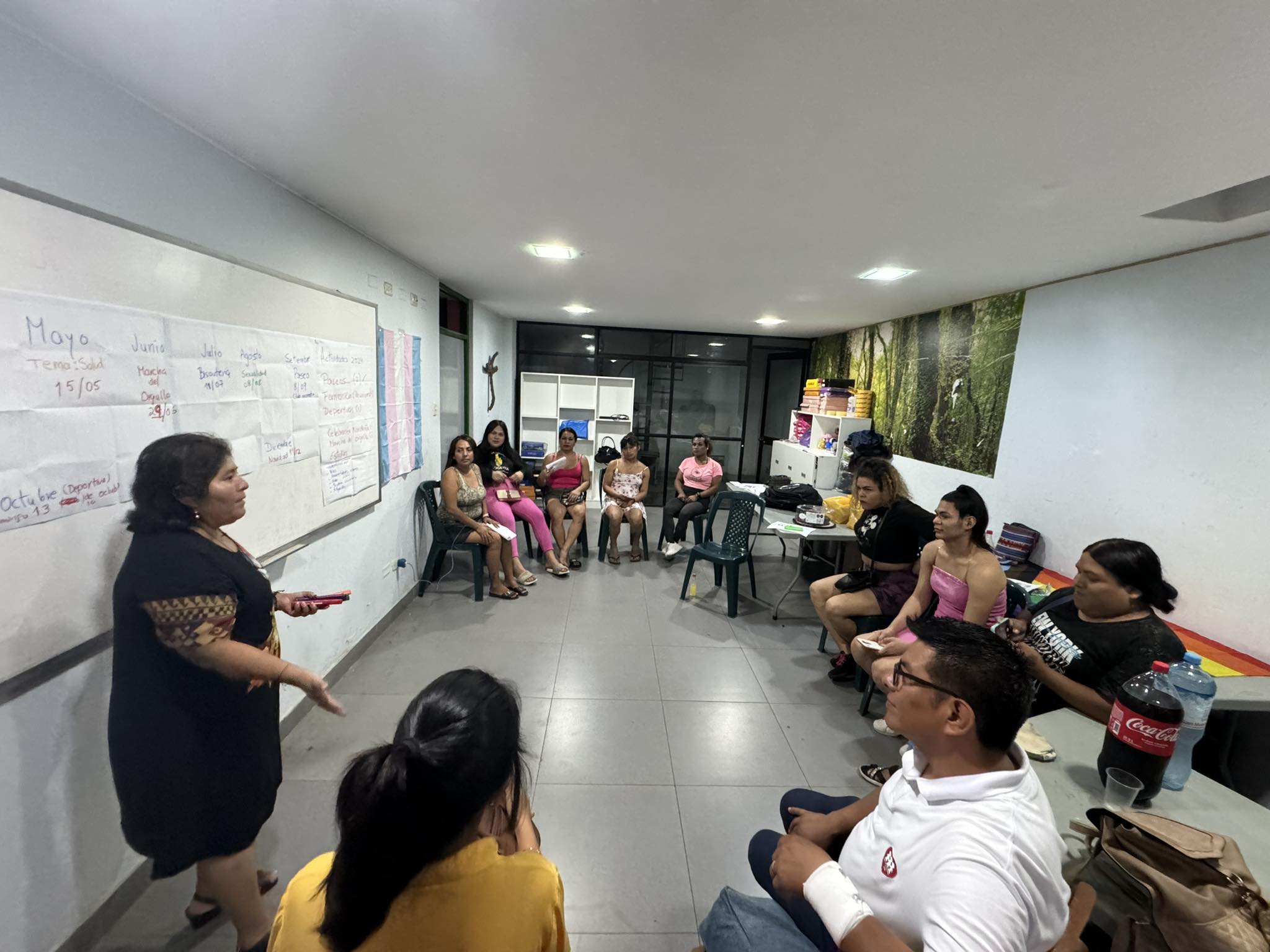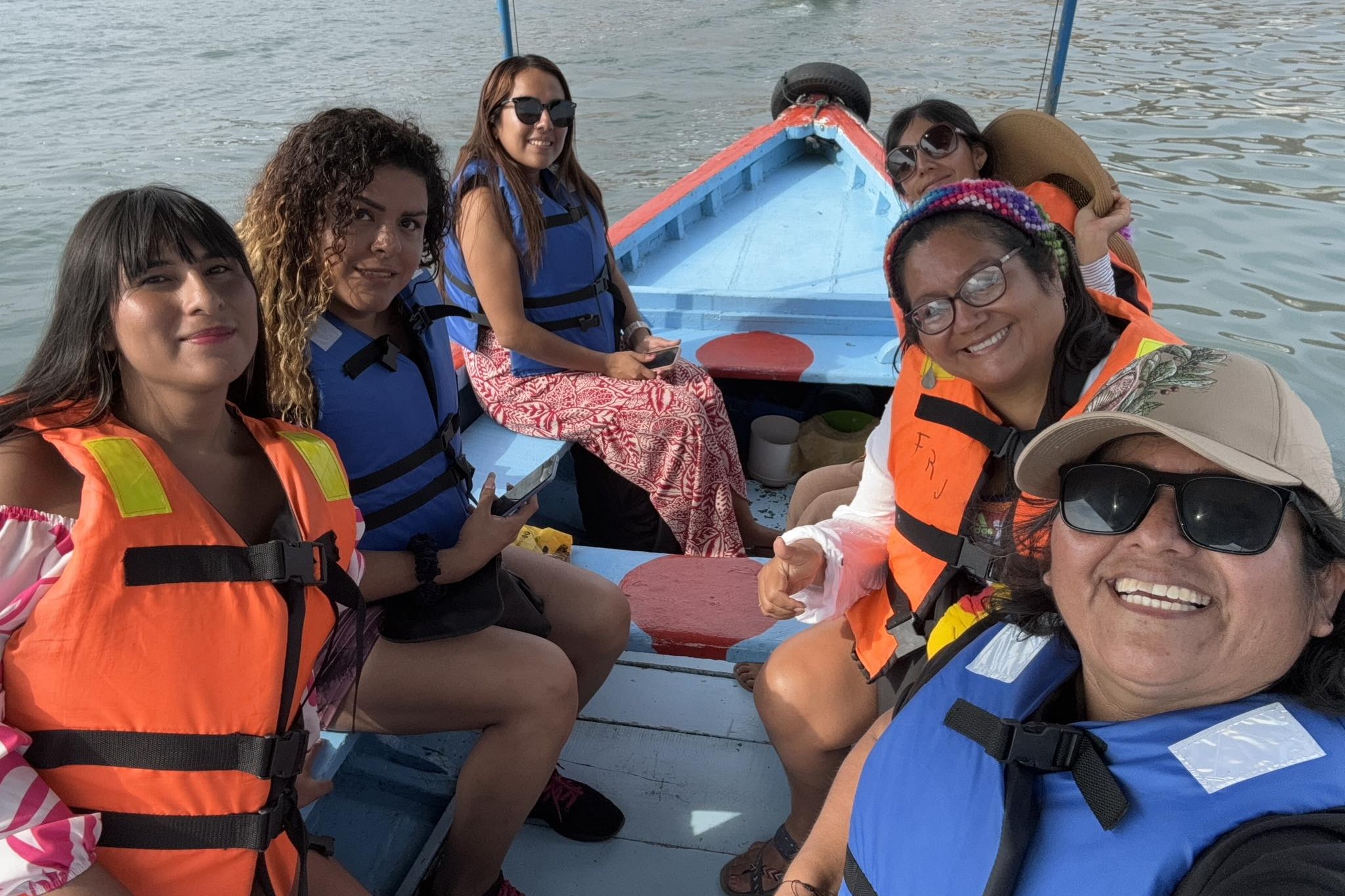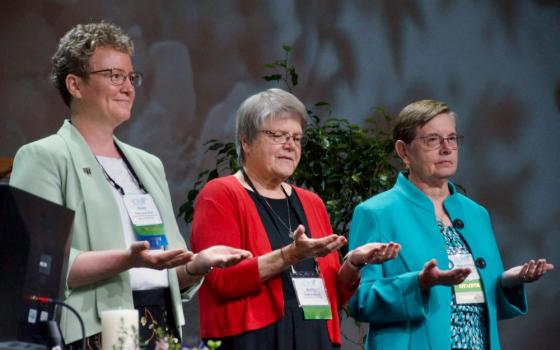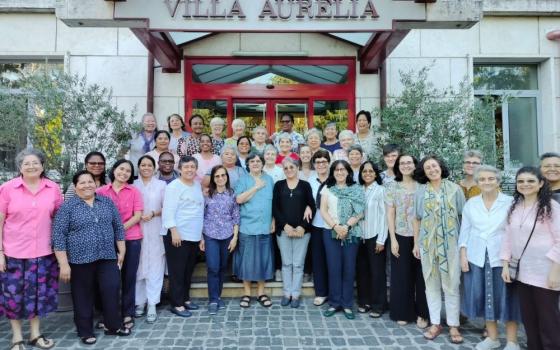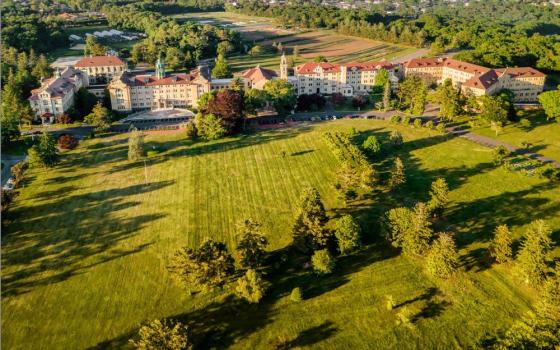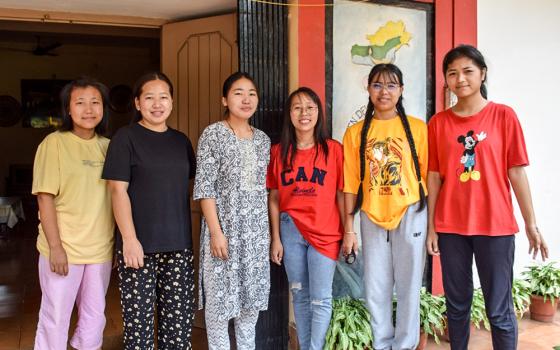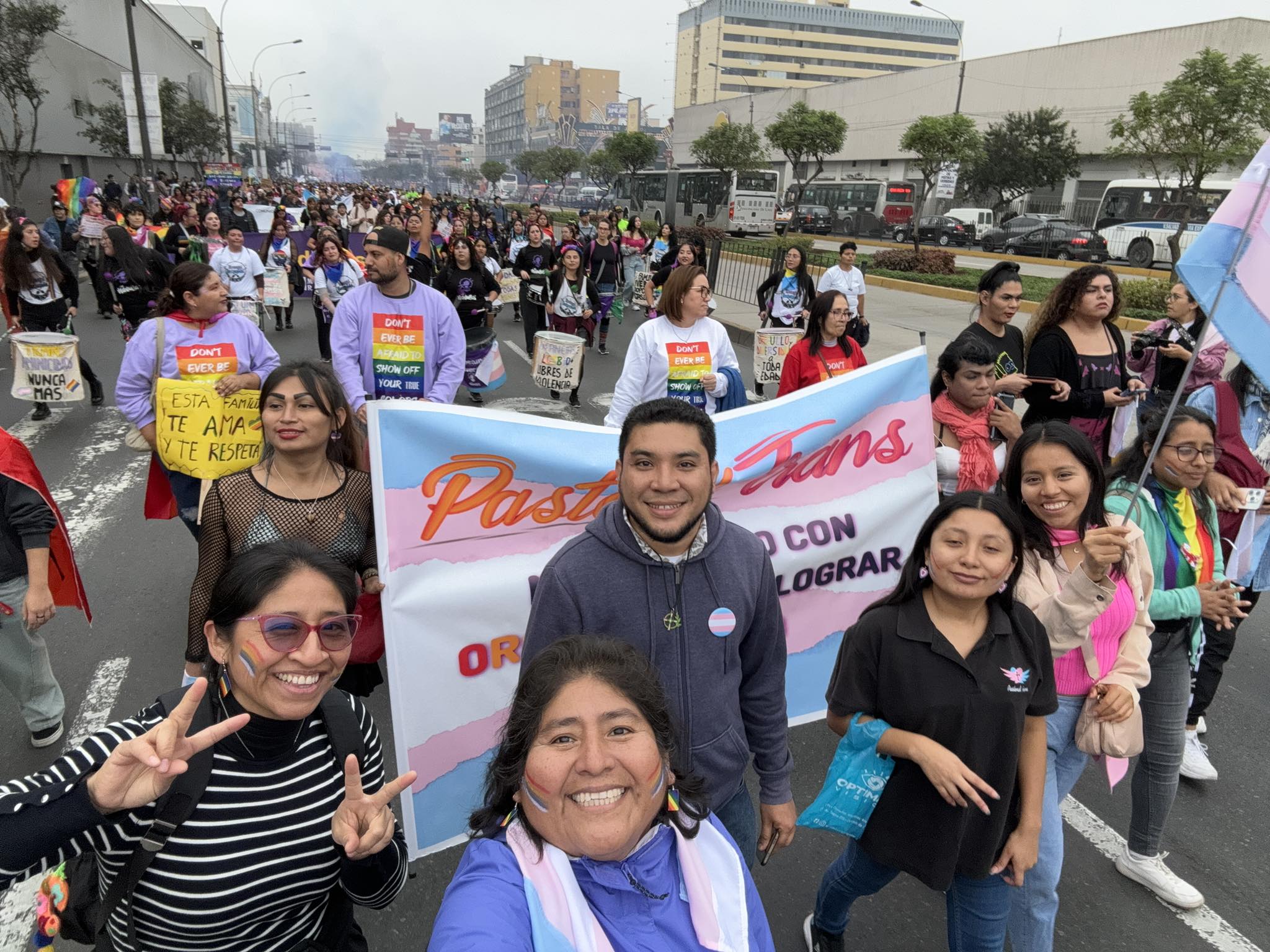
Members of the Pastoral Trans (Sr. Ana María Vilca, in blue shirt in the center) participated in the Pride march in Lima, Peru, on June 29. (Ana María Vilca)
For over seven years, in San Juan de Lurigancho, the largest and most populated district in Latin America, a creative apostolate has been supporting transgender women who provide sexual services in the area.
The Trans Pastoral Ministry was established as an inter-congregational service involving the Sisters of the Holy Names of Jesus and Mary, the Sisters of the Holy Cross, the Christian Brothers and the Dominican Sisters of the Holy Name of Jesus, all initially seeking to serve in outreach pastoral ministry. To promote the inclusion and development of these marginalized women, we began visiting them in the early morning at the street corners where they worked, offering coffee and sandwiches. Initially met with mistrust, we gradually built relationships, aided by Lorena, a transgender woman who helped bridge the gap.
The team comprises religious men and women, priests and lay people and is open to those who wish to collaborate and walk with us. We initiate conversations using the words of Jesus: "What do you want me to do for you? " without a fixed plan, just listening and understanding the reality, needs and expectations of those we serve.
We are planning workshops on accompanying transgender people to sensitize the broader population, particularly, pastoral agents.
Currently, the team consists of 10 volunteers whose mission is to visit the workplaces of transgender women, organize and lead monthly meetings on topics of interest, and coordinate visibility walks to normalize their reality. Despite advances in the acceptance of sexual diversity in the 21st century, we have witnessed — when accompanying them to events and trips to cultural centers — how they still face stares, ironic comments, mockery or even outright offenses, which highlights their resilience and courage.
For the past three years, scholarships have been awarded for studies in cosmetology and hairdressing. Although it was initially challenging to motivate transgender women to pursue studies, interest has grown over time. Many of these women are migrants who came to Lima seeking better opportunities and greater freedom; some abandoned their studies or are pursuing unfulfilled dreams, while others ran away from home. These experiences have changed the perception of several team members, transforming their prejudice into greater understanding and compassion.
Karolyn, a 22-year-old woman from the Peruvian jungle, left school after the fifth grade. Following that, she suffered abuse by her stepfather, which forced her to leave home. She says that her mother protected her, but also witnessed her suffering. In Lima, she never had the opportunity to continue her studies.
Three years ago, she asked to study cosmetology, and she did so in a government institution where she was the only transgender woman. There, we witnessed her empowerment and determination to pursue something she enjoys. She finished her studies among the top of her class and believes she deserved to be first. Now, she works in a beauty center and continues her studies to further specialize. Karolyn smiles, knowing she has much to live for and share. She inspires us.
We are proud of the journey the Trans Pastoral Ministry has taken, although at times the process seems long. It is gratifying to see how many of these women trust the team and feel welcomed in the spaces of prayer and reflection. After attending a meeting and listening to the trans women, one of us expressed: "After so many years, I can say that it is worth it to be here."
The Trans Pastoral Ministry responds to the signs of the times. During the pandemic, food baskets were distributed due to nighttime traffic restrictions that prevented many transgender women from working. Additionally, workshops have also been held with specialists in alliance with organizations and activists, such as Red Trans (an organization advocating for the human rights of trans people). The strategy of having members from the same community lead these conversations has been more widely accepted by them.
We are planning workshops on accompanying transgender people to sensitize the broader population, particularly, pastoral agents. On the last weekend of June, our team — accompanied by four trans women — marched through the streets to demonstrate that we are a part of the church that accompanies the people of God, embracing and welcoming everyone regardless of murmurings or condemnations. Just as Peter was told in a vision, "In truth, I see that God shows no partiality" (Acts 10:34).
This is the third year that the Trans Pastoral Ministry has participated in the Pride march, and we are witnessing a growing openness and participation. However, there is still much work to be done. We remain committed to encouraging more pastoral agents and friends to join this cause.
[This story was originally published in Spanish on Aug. 9, 2024.]
